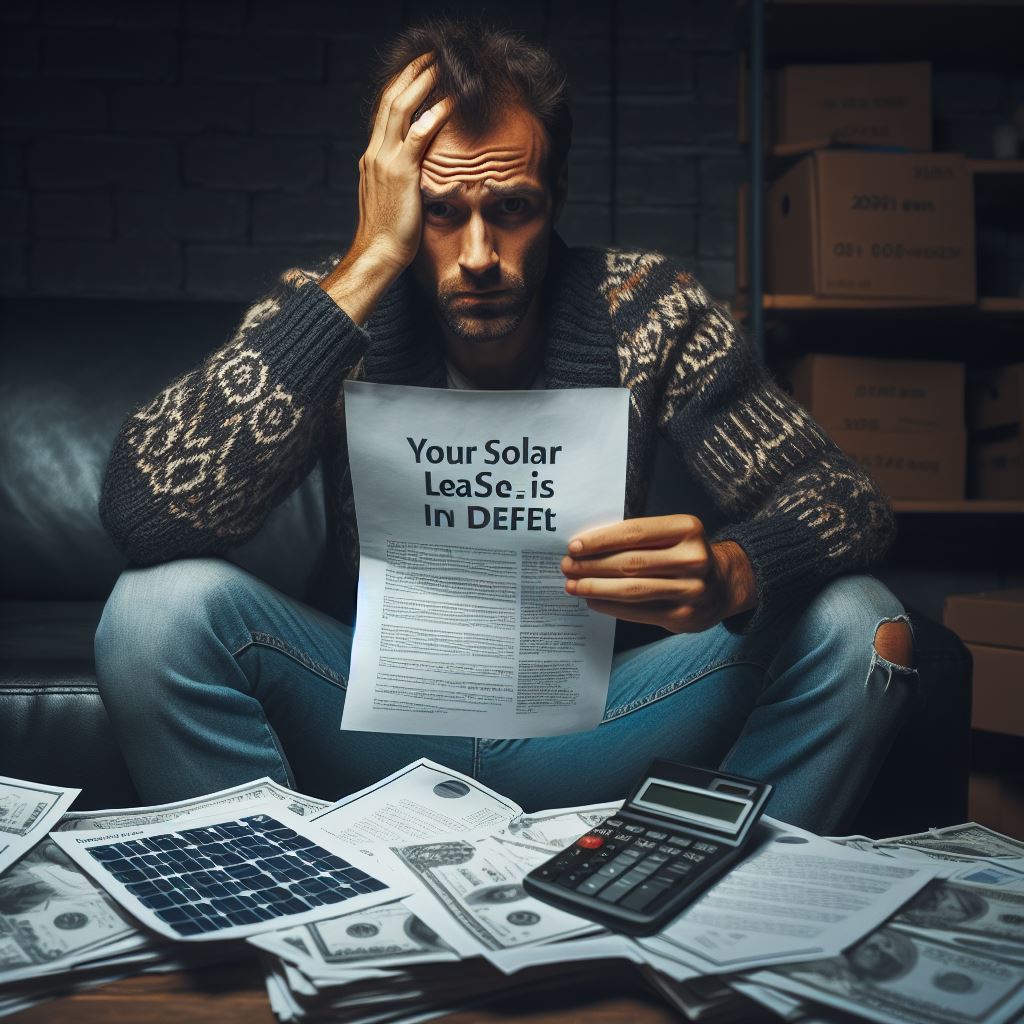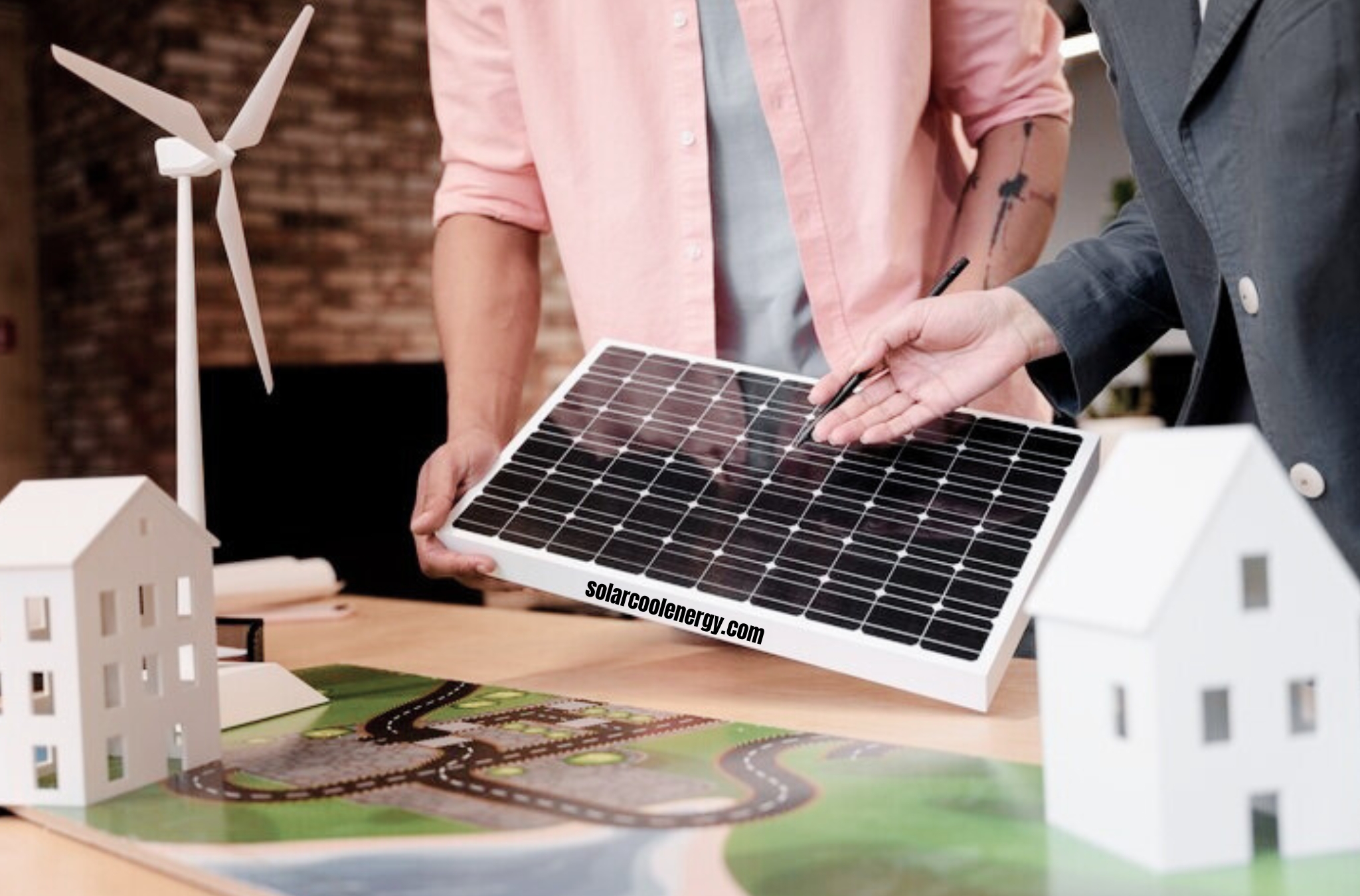If you Stop Paying My Solar Lease, the leasing company may repossess the system. This could impact your credit score and may result in legal action.
As a homeowner with a solar lease, it’s important to understand the potential consequences of not paying your lease. Failing to make payments on your solar lease can lead to serious repercussions, including a negative impact on your credit score and legal action taken by the leasing company.
In some cases, the leasing company may repossess the solar system, and you may still be responsible for any remaining lease payments. It’s essential to carefully review your lease agreement and fully understand the terms and potential outcomes if you’re considering not paying your solar lease. By being informed of your responsibilities and potential consequences, you can make better-informed decisions regarding your solar lease.

Consequences Of Not Paying Your Solar Lease
When you enter a solar lease agreement, it’s essential to uphold your end of the financial obligation. However, if you find yourself unable to make payments on your solars lease, there are significant consequences to be aware of. Not paying your solar lease can lead to various legal and financial implications that can severely impact your situation. Here are some potential consequences of not paying your solar lease:
Potential Lien On Your Solar System
If you default on your solar lease, the leasing company may place a lien on your solar system. This means that they can legally claim ownership of the system due to the unpaid lease payments. A lien can affect your ability to sell your property, as potential buyers may be hesitant to proceed with the purchase if there is a lien on the solar equipment. It is important to understand the potential ramifications of having a lien on your solar system, as it can complicate future property transactions and financial matters.
Impact On Your Credit Score
Failure to pay your solars lease can lead to a negative impact on your credit score. Missed lease payments can result in the leasing company reporting the delinquency to credit bureaus, which may lower your credit score. A lower credit score can affect your ability to secure loans and other forms of credit in the future. It’s crucial to recognize that defaulting on your solar lease can have far-reaching consequences and take proactive steps to avoid damage to your credit reputation.
Solutions For Handling Unpaid Solar Lease
When facing difficulties in keeping up with your solar lease payments, it’s essential to explore potential solutions to avoid significant repercussions. Below are some effective ways to handle an unpaid solar lease that can help navigate this challenging situation.
Negotiating With The Solar Company
One potential solution for handling an unpaid solar lease is to initiate negotiations with the solar company. By open communication and transparency about your financial situation, there may be opportunities to restructure the payment plan, defer payments, or explore alternative arrangements to prevent defaulting on the lease. Effective negotiation can lead to finding mutually beneficial solutions that alleviate the financial burden while maintaining the solar system.
Transferring The Lease To A New Homeowner
Another viable option is to consider transferring the solar lease to a new homeowner if you are planning to sell your property. This process involves finding a potential buyer who is willing to assume the existing lease terms and continue making the payments. Transferring the lease can be a practical solution to avoid default while allowing the new homeowner to benefit from the solar system and its associated savings.
Legal Ramifications Of Defaulting On Your Solar Lease
When it comes to leasing solar panels, defaulting on the payments can have serious legal implications. It’s essential to understand the potential lawsuits, judgments, and buy-out options to make informed decisions regarding your solar lease.
Potential Lawsuits And Judgments
If you default on your solar lease, the leasing company may pursue legal action against you, potentially resulting in a lawsuit. This could ultimately lead to a judgment being filed against you. A judgment allows the leasing company to take legal steps to collect the amount owed, which may include placing a lien on your property or garnishing your wages.
Understanding Buy-out Options And Fees
Many solar leasing contracts offer specific buy-out options and prices directly in their terms. However, it’s crucial to be aware that you may be subject to hefty buy-out fees if you choose to terminate the lease early. Before entering into a solar lease, carefully review the buy-out terms to understand your financial obligations in the event of default or early termination.
End Of Solar Lease: Panel Removal And Decommissioning
When your solar lease comes to an end, whether due to non-payment or the natural conclusion of the lease term, it’s important to understand the process of panel removal and decommissioning. Understanding your responsibilities and the procedures involved is crucial to ensure a smooth transition.
Responsibilities When The Lease Ends
Upon the conclusion of the solar lease, responsibilities for panel removal and decommissioning are typically outlined in the contract agreement. Generally, the solar company or leasing provider is responsible for the removal and decommissioning process. It’s important to review your lease agreement to understand your specific obligations.
Procedures For Solar Panel Removal
The procedures for solar panel removal are typically conducted by the solar leasing provider. This may involve scheduling a visit from their technicians to dismantle and remove the panels from your property. It’s important to communicate with the leasing company to coordinate the removal process and ensure a smooth transition.
Additionally, the decommissioning process involves safely disconnecting the panels from the electrical system and returning the property to its original state. The solar leasing provider is responsible for ensuring that the decommissioning is carried out in compliance with industry regulations and standards.
FAQs Of What Happens If I Stop Paying My Solar Lease
What Happens If You Default On A Solar Lease?
Defaulting on a solar lease could lead to a lien on your solar system and potential repossession by the lender. It may also impact your credit score and result in legal action. Transferring the lease to a new homeowner or paying a buy-out fee are potential options for canceling the lease.
What Happens If I Don’t Pay My Solar Loan?
If you don’t pay your solar loan, the lender may place a lien on your solar system. The lender has the right to seize and repossess your system. Additionally, a collection agency may report the debt to credit bureaus. However, they cannot take your home without a court judgment.
How Do You Break A Solar Lease?
To break a solar lease, check the lease for buy-out options. You can transfer the lease to a new homeowner if you sell your property. However, be aware of potential pricey buy-out fees in the contract. It is important to carefully review the terms before taking any action.
What Happens When A Solar Panel Lease Ends?
After a solar panel lease ends, the company that owns the equipment is responsible for removing or replacing the solar panels. There may be buy-out options, but hefty fees could apply. If the lease is canceled due to selling the property, transferring the lease to the new homeowner is typically an option.
Conclusion
If you’re considering ceasing payments on your solar lease, it’s vital to fully understand the potential ramifications. The decision could result in legal action and impact your credit score. Also, the solar company may repossess the equipment. Exploring alternative solutions or seeking legal advice is advisable to navigate this complex situation.

